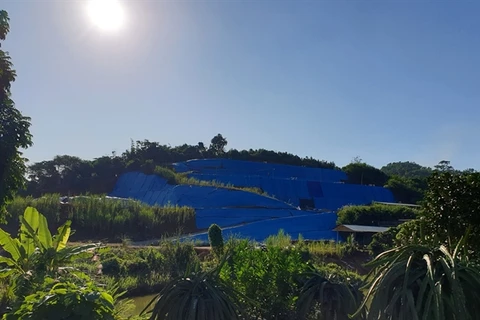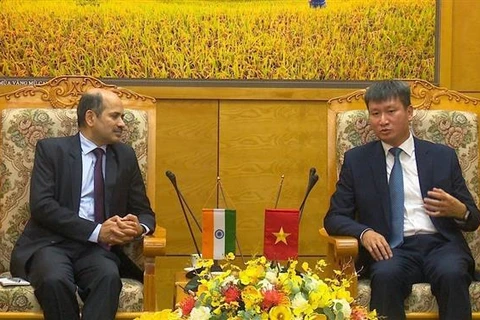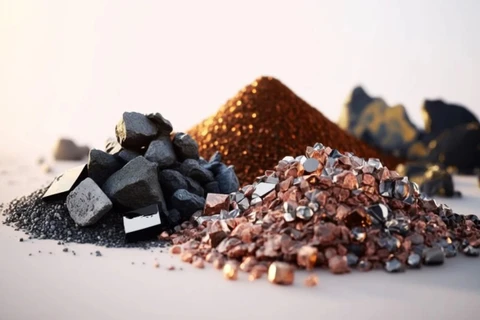 Vietnam has the world's second-largest reserves of rare earths - an estimated 22 million tonnes. (Photo: baodautu.vn)
Vietnam has the world's second-largest reserves of rare earths - an estimated 22 million tonnes. (Photo: baodautu.vn) Development directions for the industry were discussed by scientists at a recent symposium held in Hanoi by the Vietnam Academy of Science and Technology (VAST) and the Ministry of Science and Technology.
They suggested developing the processing of special high-value elements such as Pr and Nd, and building research and transfer centres to master core technology in extractive metallurgy.
VAST President Prof. Chau Van Minh pointed out that with the current technology, Vietnam is unable to mine and process rare earths, as so far countries do not transfer technology in the field.
According to research studies, Vietnam’s rare earth mines are mainly concentrated in its northwestern provinces of Lao Cai, Yen Bai and Lai Chau.
The Prime Minister on July 18 issued a decision approving a master plan on the exploration, exploitation, processing and use of minerals for 2021-2030 with a vision towards 2050, which targets harmony, efficiency and sustainability in the rare earth industry.
Professor Nguyen Quang Liem, former Director of the Institute of Materials Science under the VAST, said it is necessary to launch projects and build laboratories to improve research capacity, as well as exploitation and processing technology, focusing on intensive processing and utilisation of rare earths for industrial products with high economic values.
Rare earths are being used to produce wind turbines and magnets, and serve renewable energy and green transportation sectors, he said, stressing that the global demand for rare earths is expected to double by 2030 and quadruple by 2050.
He also pointed to environmental impacts from rare earth exploitation and suggested more research on this issue.
The conference looked into cooperation between businesses and scientists in research in order to raise the efficiency of rare earth exploitation and processing, thus fostering the industry in Vietnam./.
Professor Nguyen Quang Liem, former Director of the Institute of Materials Science under the VAST, said it is necessary to launch projects and build laboratories to improve research capacity, as well as exploitation and processing technology, focusing on intensive processing and utilisation of rare earths for industrial products with high economic values.
Rare earths are being used to produce wind turbines and magnets, and serve renewable energy and green transportation sectors, he said, stressing that the global demand for rare earths is expected to double by 2030 and quadruple by 2050.
He also pointed to environmental impacts from rare earth exploitation and suggested more research on this issue.
The conference looked into cooperation between businesses and scientists in research in order to raise the efficiency of rare earth exploitation and processing, thus fostering the industry in Vietnam./.
VNA























